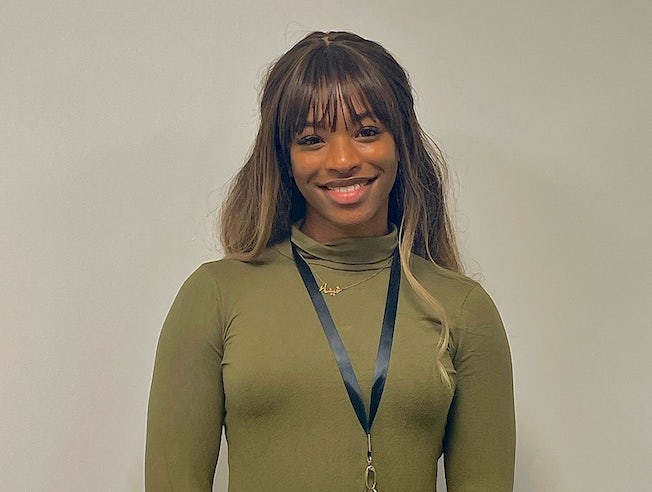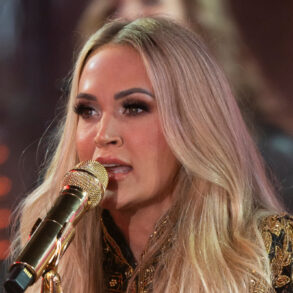 Born into a Sudanese family, my parents made a significant decision that would shape my experiences as a Black woman in ways I could never have anticipated. They chose to move our family to a small town in Oxfordshire, far away from their Sudanese community. This decision, coupled with my education at a Catholic primary and secondary school, set the stage for a distinctive upbringing that led me to identify more with my White peers than with others who looked more like me. This complex journey of identity continued throughout my life, culminating in a sense of isolation and an identity crisis that has continued in my 20s.
Born into a Sudanese family, my parents made a significant decision that would shape my experiences as a Black woman in ways I could never have anticipated. They chose to move our family to a small town in Oxfordshire, far away from their Sudanese community. This decision, coupled with my education at a Catholic primary and secondary school, set the stage for a distinctive upbringing that led me to identify more with my White peers than with others who looked more like me. This complex journey of identity continued throughout my life, culminating in a sense of isolation and an identity crisis that has continued in my 20s.
In the small town we called home, diversity was a rare commodity. Our family was one of the few Black households in the area at the time that we moved, and as a result, my siblings and I were often the only Black faces in our school. Attending a Catholic school further emphasized our uniqueness within our Muslim Sudanese family. While my parents prioritised the quality of education, they were also motivated by the hope that it would instil in us the values of discipline, respect, and tolerance.
My childhood friends were predominantly White, and while this provided me with a sense of belonging in my immediate community, it also marked the beginning of my struggle to connect with the Sudanese community. On Saturdays, I attended Arabic school where I was exposed to Sudanese culture and the Arabic language. Despite my heritage, I found it challenging to mix with the Sudanese girls in this setting. It was as if I was straddling two worlds, never fully fitting into either one. My linguistic and cultural barriers became a wedge between me and the other Sudanese children.
As I grew older, my experiences in the small town and at my Catholic primary school continued to shape my identity. I felt more connected to my Caucasian counterparts, sharing their interests and cultural experiences. Yet, I couldn’t ignore the fact that my skin colour and hair texture made me different, a difference that became more pronounced as I ventured into adolescence. It was during these formative years that I realised the importance of representation and the need to see people who looked like me in positions of influence and leadership.
One aspect of my identity that became a focal point of my journey was my hair. Like many Black women, I grappled with the societal pressures and beauty standards that often favour Eurocentric features, including straight hair. In my quest to fit in, I experimented with different hairstyles, recently opting for straightened hair that aligned more with Caucasian beauty ideals. It was disheartening to realise that, as my hairstyle changed, I began to feel like society took me more seriously. The subtle bias that exists against natural Black hair became all too evident.
This experience was both frustrating and disappointing. It was a reminder of the pervasive stereotypes and prejudices that Black women face in their daily lives. My decision to alter my hair to conform to societal norms was a painful compromise, one that many Black women are forced to make. It emphasised the need for a broader conversation about embracing natural beauty and challenging harmful beauty standards.
In my 20s, I find myself facing an identity crisis that has only intensified. I often feel like I don’t fully belong in either the predominantly White professional world or within Black communities. My hair, while a superficial aspect of my identity, has become symbolic of the complexities I navigate. My experiences have left me feeling too Black to fit in with my White colleagues, who may not fully understand the challenges and nuances of being a Black woman in today’s society. On the other hand, I sometimes feel too Caucasian to comfortably integrate into Black social circles, where shared cultural references and experiences can create a sense of exclusion.
This identity crisis has taught me the importance of acknowledging and celebrating the unique tapestry of my experiences. It’s okay to have a complex identity that doesn’t neatly fit into one category. Embracing my cultural heritage while also appreciating the diversity of the world around me has become my journey.
As I reflect on my experiences, I am reminded of the need for inclusivity and representation in all aspects of society. It’s crucial for individuals like me to see themselves reflected in various roles, professions, and positions of leadership. This representation not only empowers individuals to embrace their own identities but also fosters a more inclusive and empathetic society.
In conclusion, my journey as a Black woman has been a complex one, shaped by a unique upbringing and a constant struggle to reconcile my sense of self. From a small town to a diverse university and now the city where I work, my experiences have highlighted the importance of embracing our individuality while also recognising the value of diversity. I hope that through understanding and empathy, we can all find our place in this diverse and ever-evolving world, free from the constraints of biased beauty standards and societal expectations.
Ghaydaa Hassan is a trainee at Freeths

This post was originally published on this site be sure to check out more of their content.






